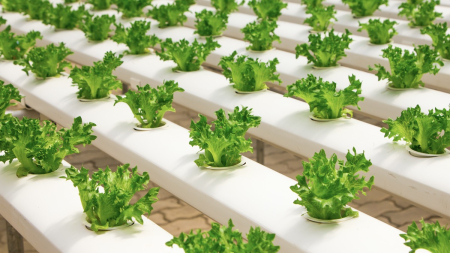The Role of Agriculture + Food Processing in the Energy Economy

NCFIL Executive Director Dr. Bill Aimutis recently had the privilege to speak and participate on a panel for the E4 Carolinas Association. This trade group focuses on the Carolinas’ energy economy to provide members opportunities to increase their value and success.
The conference theme was about energizing the post-pandemic economic recovery, and NCFIL’s focus was on Food and Ag Tech. The session was moderated by NC Chamber General Counsel Ray Starling. The diverse panel discussed the role of agriculture and food processing in the energy economy.
Food Industry = Significant Energy User
The food industry annually uses 1.6 quadrillion BTU’s of energy. The food industry accounts for 16% of the total energy used in the United States and ranks third as the most energy-intensive industry. The heaviest energy categories include electricity (58%), natural gas (32%), and diesel/fuel oil (10%). The most energy-intensive food manufacturing plants are those refining edible fats and oils.
Energy usage in food processing plants is predominantly in heating/drying, cooking/refrigeration, boilers, machine drives/product handling equipment, lighting, heating, ventilation, and air conditioning (HVAC). The heaviest water usage in food plants is focused on cleaning, sanitation and manufacturing. Water is also important in food formulation, and excellent water quality is paramount for sensory and food safety.
A Focus on Sustainability
Consumers were lobbying the food industry to consider sustainability of our natural resources several years prior to the pandemic. Food manufacturers have made reasonable progress toward reducing packaging waste and electrical consumption, monitoring carbon usage, and re–utilizing waste water. Most major food companies issue an annual sustainability report, which notifies customers and investors of the strides the company has made year over year.
Although the past year has seen less energy conservation activism, the story has not diminished in importance. Consumers and regulatory agencies will bring these issues back to the global stage, and food companies must continue making strides toward energy sustainability and conservation of fossil fuels. Even small companies can, and should, consider their energy programs as they design and construct new plants.
Reducing Your Company’s Energy Usage
How can food manufacturers reduce energy usage? The first important step is monitoring where energy is being used. A decade ago, we were using our electric, natural gas, and water meters to quantify usage. Today, both mechanical and audio sensors are available to monitor energy usage at every consumption point on all equipment or environments. The next important step is to analyze the accumulated data, identify the “pain points” of energy usage, and then correct problematic areas or processes. Also, consider whether processes can be re-designed to reduce water usage or recycle water.
Once this is accomplished, focus on applying rigorous controls, including training employees, to reduce energy waste. Finally, it’s important to sustain your gains and not become complacent. Avoid sliding back into old habits where energy conservation is ignored.
Importance of Energy Conservation
Our global population is steadily increasing toward 10 billion people. There are numerous items to consider as we increase our capacity to feed future masses. Energy conservation is another facet we should not ignore.
The energy trends discussed are very familiar to the NCFIL team, so let’s talk about how NCFIL can advise you on energy usage.
- Categories: